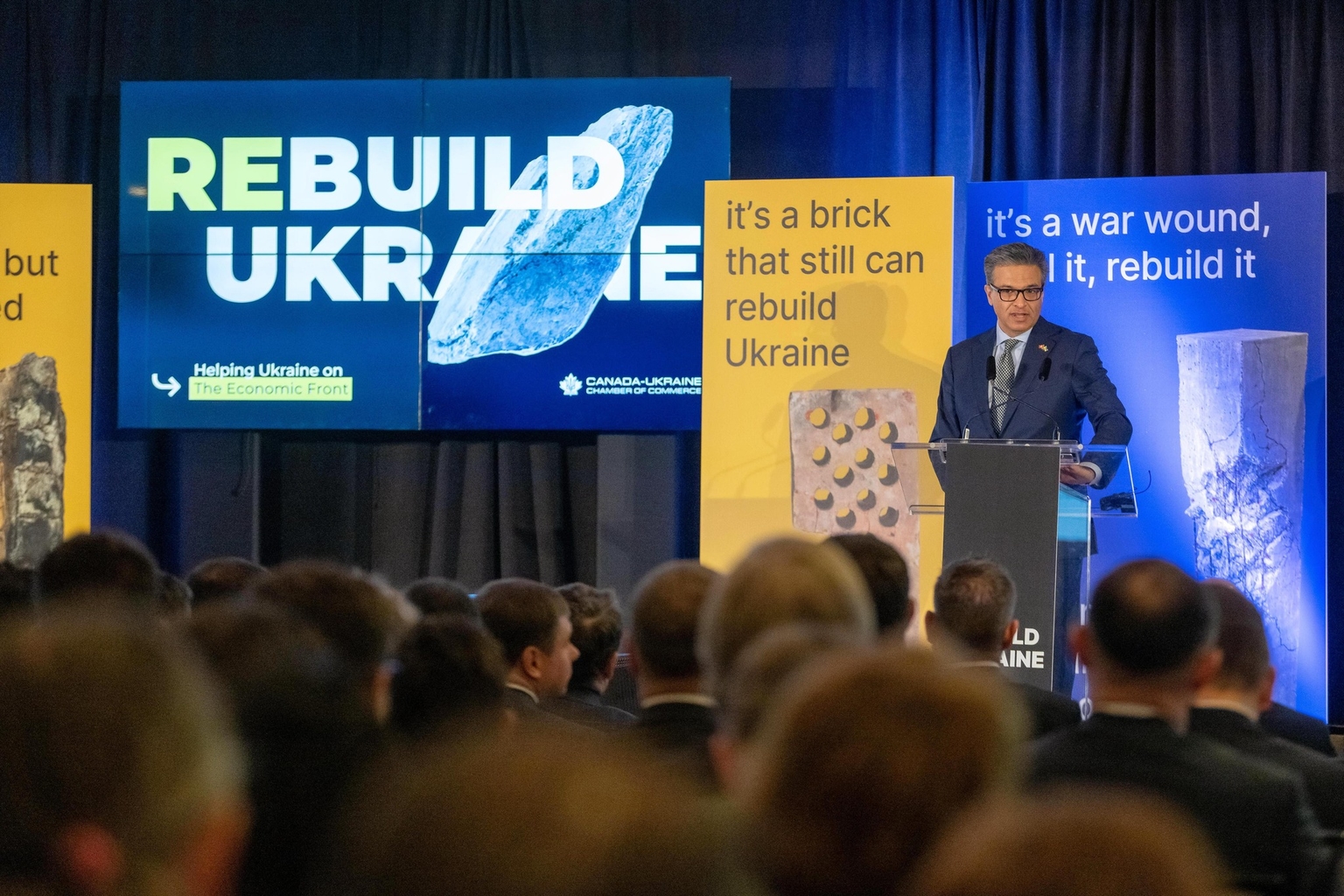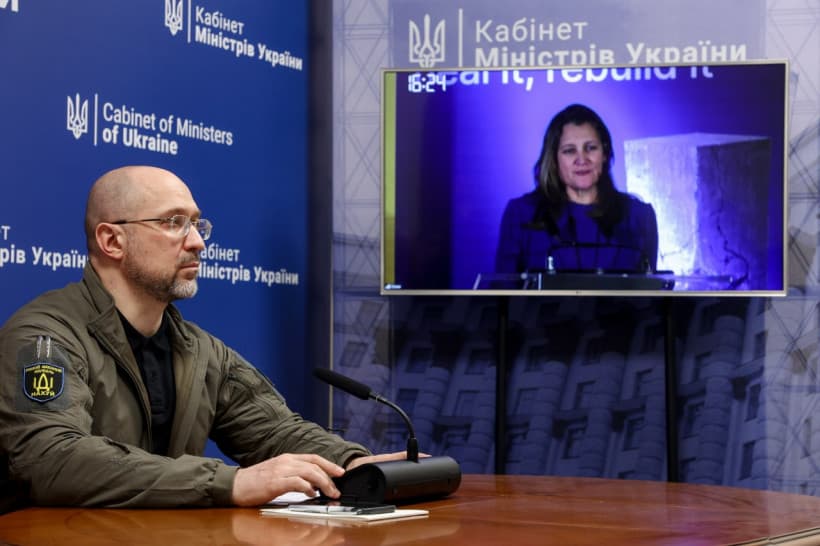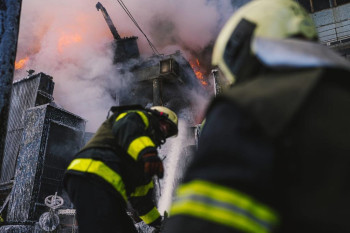The Rebuild Ukraine Business Conference convened on Nov. 23 in Toronto while Russia launched yet another massive missile strike all over Ukraine, killing civilians, damaging critical infrastructure, and causing major blackouts across Ukraine and even parts of neighboring Moldova.
Organized by the Canada-Ukraine Chamber of Commerce and Business Council of Canada, the conference aimed at showcasing investment opportunities in the agriculture, infrastructure, and energy sectors.
According to a joint assessment by the World Bank, the European Commission, and the Ukrainian government released on Sept. 9, the cost of reconstruction totals $349 billion.
But the sum is expected to grow considerably higher as Russia continues to launch massive strikes against Ukraine, destroying critical infrastructure all over the country.
Russia has been targeting energy facilities across Ukraine with mass missile strikes since early October.
As of Nov. 18, half of Ukraine’s energy system was disabled as a result of attacks, according to Prime Minister Denys Shmyhal.
As Russia admits that Ukraine’s energy infrastructure is one of its primary goals, Kyiv expects more attacks on the system.
According to the Geneva Conventions, attacking vital public infrastructure is a war crime.
Priority investment areas
Joining the conference from Ukraine amid yet another Russian attack on energy facilities, Shmyhal outlined the most imminent support that Ukraine needs.
“To restore the operation of our energy system and survive winter, we need significant financial resources and, most importantly, specific equipment that is scarce worldwide,” he said. “Therefore, we count on the support of Canadian businesses in this matter to help with critical supply needs in this extremely challenging situation.”
Several speakers echoed Shmyhal’s opinion emphasizing that Ukraine needs aid in the form of generators, heaters, and transformers — anything that could help Ukrainians restore networks and survive the winter.
Shmyhal also shared priority investment areas which, besides energy, included security and military-industrial complex, agriculture, IT, and infrastructure.
The official said that the rebuilding of Ukraine needs to begin now but acknowledged that reconstruction can’t start without investment. He said the Ukrainian government is working on war risk insurance to attract investors.
“In particular, the World Bank is ready to support investment in the Ukrainian economy,” he said. “We are negotiating with the International Finance Corporation and MIGA.”
Ukraine’s Ambassador to Canada Yuliia Kovaliv added that the “private sector will be the biggest driver for the rebuilding of Ukraine with the partnership of the governments, with the instruments, as Prime Minister (Shmyhal) mentioned about the insurance, about the credit support.”

Canada’s support for Ukraine
During the event’s opening, Deputy Prime Minister of Canada Chrystia Freeland highlighted the support the Canadian government has provided to Ukraine.
Announced in late October by Prime Minister Justin Trudeau, the $500-million Ukraine Sovereignty Bond program was launched on Nov. 21, two days before the event.
“This Ukraine sovereignty bond will help the government of Ukraine continue to provide essential services to Ukrainians this winter, such as pensions, buying fuel, restoring energy infrastructure,” Freeland said during the conference.
The regular five-year Government of Canada bond in denominations starting at 100 Canadian dollars ($74.5) was available for purchase from the participating financial institutions in Canada until Nov. 29. After this date, those interested may still be able to buy the bond if available.. Borrowers will receive interests twice per year until the bond matures on Aug. 24, 2027 — Ukraine’s Independence Day.
According to the Government of Canada’s website, “the funds cannot be used for lethal activities or purchases.” The collected money will be transferred to Ukraine via the International Monetary Fund (IMF) in the form of a loan.
“So far this year, Canada has committed more than 5 billion Canadian dollars ($3.7 billion) in financial, military and humanitarian aid to Ukraine,” Freeland said. “Nearly 1.5 billion Canadian dollars ($1.1 billion) of that support has been dispersed through the IMF administered account… so that Prime Minister (Shmyhal), Finance Minister Serhii Marchenko can pay the pensions that people need, so that they can keep the energy infrastructure going.”











